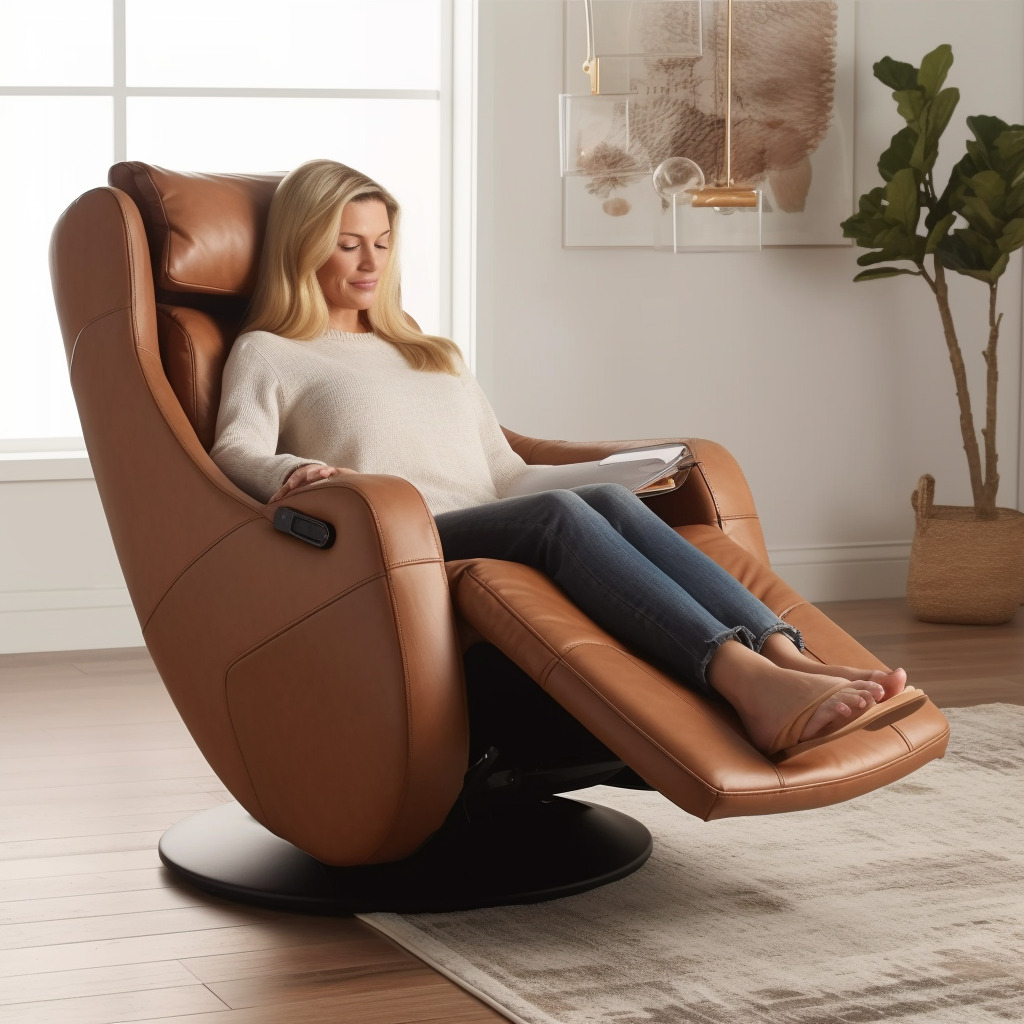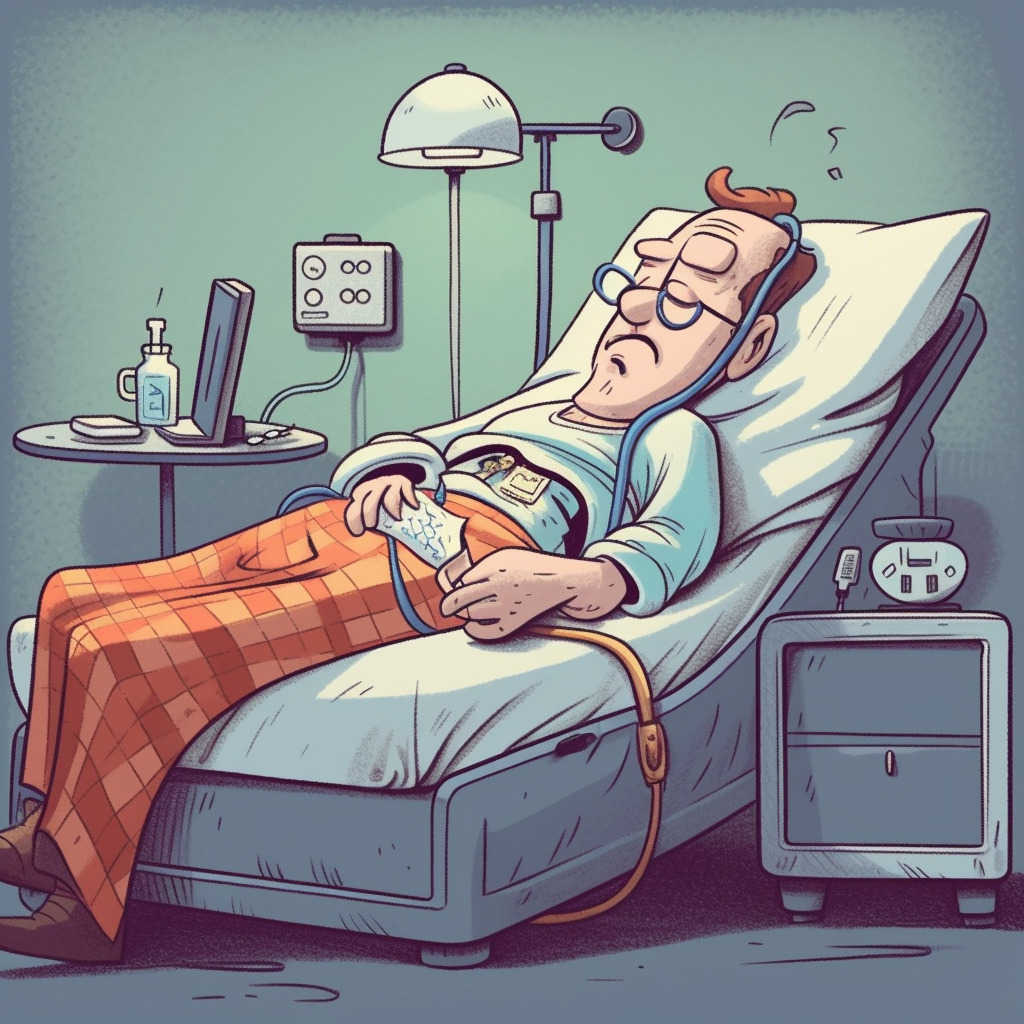Today, hernia and hernia surgery are common, routine medical procedures.
Expect some discomfort and pain when preparing for or recovering from hernia surgery. This is normal and part of the healing process.
As a result, there are ways to accommodate your sleep during this time. Ensuring ample rest is crucial for healing after your operation. We have tips and support to help you sleep well and recover after hernia surgery.
How to sleep after hernia surgery?
Post-hernia surgery, expect 1-2 weeks of recovery, pain, and possible sleep issues. A suitable sleeping position may also be difficult to find when you have a wound or stitches that need to be protected.
Your general stomach and groin area will most likely be sore for a while. Sleep is key to recovering from any surgery. Here are some tips from Sleepreporter.com for better rest after hernia surgery.
1. Sleep in an elevated position
Your doctor may have mentioned that sleeping elevated can be less painful and is often better after hernia surgery. Laying all the way down, be it on your back or on your sides can be quite painful.
As such, it is recommended to sleep on one or more pillows that you can set behind your back to maintain a half-sitting/half-lying position.
While this will take some getting used to, it will be the most comfortable set up right after surgery. As the days pass and you slowly recover, you may adapt the set-up or the number of pillows to better suit your needs. Also, be mindful of elevating your whole torso, rather than only your head – this will help prevent straining in your neck.
2. Take care of the incision when getting in and out of bed

You will most likely do this quite naturally but make sure to mind your incisions while getting in and out of bed. The last thing you want to is to put more weight, stress or pressure on your wound, and/or pull your stitches. Since your abdomen will be sore after surgery, move slowly and when getting in and out of bed.
While getting into bed, the general advice is to prepare your bed before you lie down, set up all your pillows . Hug a pillow against your abdomen while moving to help ease pain and keep your wound secure.
If this sounds like it may be of help, try sitting on the bed first, then laying on your side on your pillows, before rolling onto your back. This should cut movement when you’re settling in.
While getting out of bed, repeat the steps above, but in reverse. Roll onto your side, place your feet on the ground and use your arms and elbows, rather than your abdominal muscles to prop yourself up safely.
Breathe slowly and deeply while moving, like during exercise or meditation. Remember, it’s not a race but about self-care.
While this may be a bit counterintuitive, try exhaling as you sit up. This should help you through the effort. You may also ask for someone in your house to help support you for a few days post-surgery.
3. Consider investing in an automated recliner or a wedge pillow

Sleeping on our backs and in an elevated position can be far from natural for most of us. Consider a recliner for more comfort instead of using many pillows.
Tiara Croft suggests using an automated recliner to ease getting in and out of bed without straining your wounds.
If you are not ready to invest in a whole recliner, you may want to consider a wedge pillow. This foam pillow lifts your chest and can be used by itself or with other pillows for neck support.
This can be a good idea, especially if you might need to keep part of your body elevated in the future due to other health issues. You may, for instance, use a wedge pillow to keep your legs up and improve blood flow.
4. Tips for side sleepers
Plenty of people (especially as they age) actually turn out to be side sleepers. Changing that routine can be challenging, especially when you need to focus on your sleep after surgery.
If you can’t sleep entirely on your back, placing a pillow under your hip can provide a slight side tilt. YouTuber Chris Hamilton set up a tutorial on how to do that in this handy video.
5. Consider relaxation and meditation
Trying meditation and relaxation after hernia surgery to ease pain and improve sleep, as we do after meniscus surgery. Sometimes, hospitals even recommend meditation.
It may be a very good idea to consider this solution and remember that the benefits aren’t limited to your recovery time. Plenty of people see meditation and relaxation as a way to vastly improve their lives.
Latest Insights on Sleep Quality Following Hernia Surgery
Sleep quality after hernia surgeries is gaining attention from medical experts.. The healing process is influenced by several factors, including sleep quality and duration.
Recent research shows how treatments can affect sleep after surgery, helping patients and doctors.
Below is a summary of the latest findings from trusted sources:
1. Effects of Melatonin Treatment on Perioperative Sleep Quality – A Systematic Review and Meta-Analysis
This systematic review and meta-analysis evaluated melatonin’s effects on perioperative sleep quality. It emphasized the prevalence of perioperative sleep disorders and their potential postoperative complications. The study recommends 6mg of melatonin daily for notable improvements in post-surgery sleep..
2. Recovery From Hernia Mesh Surgery
Post hernia mesh surgery, patients are often discharged the same day, with a full recovery spanning 4-6 weeks. Factors like age, gender, weight, and mental health can influence recovery. Proper self-care, including exercise, diet, and incision care, is vital.
3. Risks and Prevention of Surgical Site Infection After Hernia Mesh Repair
SSIs after hernia surgery can lead to complications like mesh infection. Major modifiable patient comorbidities linked with postoperative SSIs include obesity, smoking, and diabetes. Preoperative measures and intraoperative interventions are emphasized to reduce risks.
4. Insomnia After Surgery: Causes and Tips for Improving Sleep
Insomnia often occurs after surgery due to pain, medication, and stress.. Addressing these factors can significantly improve sleep quality during recovery.
What to avoid after hernia surgery?
Avoid sleeping on your front and breathe through any pain instead of holding your breath.
Also, try not to twist your torso, even while sleeping, to avoid stressing your wound and stitches.. For similar reasons, try to avoid any heavy lifting after your surgery.
A hernia is the abnormal exit of tissue or an organ, such as the bowel, through the wall of a cavity in which it resides. Hernias can cause various symptoms like a groin bulge, pain, or, if the bowel is blocked, vomiting and fever
Hernias are usually remedied through different types of hernia surgery. This includes:
-
Open hernia repair surgery: Here, a cut is made, the hernia ‘sac’ with the bulging intestine is found, and then repositioned..
-
Laparoscopic hernia repair surgery: Here, a laparoscope with a small camera is inserted through a tiny belly button incision to perform the above. This surgery method often results in less scarring and usually a faster recovery.
-
Robotic hernia repair surgery: In this approach, like laparoscopic hernia repair, a surgeon uses a console to control a robot that performs the surgery. This allows the surgeon to get much better, 3-D images of the abdomen during the surgery.
Wrapping it up
In conclusion, valuing sleep is crucial after hernia surgery, as it is after any procedure. Always adhere to your doctor’s advice for a swift and smoother recovery.
Report any unusual or intense pain to your doctor. Take your medication exactly as prescribed.
If you struggle with sleep during your recovery talk to medical professional.
Always ask your doctor before taking extra medications like painkillers or sleeping tablets. They will be able to steer you towards what is best suited for your needs.
Lastly, recovery may take time and be painful, so make sure that you are not alone during this time. Your friends and family are here to help!
Sources:
Dr. Alexis Mitchell, M.D.


 Dr. Alexis Mitchell is a celebrated medical professional with a specialty in neurology and a sub-specialty in sleep medicine, bringing over 20 years of expertise in navigating the intricate relationship between chronic pain and sleep disruptions. Completing her education at the prestigious University of Pennsylvania, Dr. Mitchell has always been captivated by the challenge of alleviating physical suffering and enhancing patient quality of life.
Dr. Alexis Mitchell is a celebrated medical professional with a specialty in neurology and a sub-specialty in sleep medicine, bringing over 20 years of expertise in navigating the intricate relationship between chronic pain and sleep disruptions. Completing her education at the prestigious University of Pennsylvania, Dr. Mitchell has always been captivated by the challenge of alleviating physical suffering and enhancing patient quality of life.
Her clinical and research endeavors delve into various pain conditions, not limited to a specific region of the body, ensuring a comprehensive understanding and approach to managing pain and sleep concordantly.
Dr. Mitchell is an ardent researcher and clinician, embodying a blend of scientific curiosity and compassionate caregiving, ensuring her patients experience not just relief but also feel genuinely cared for. Her upcoming book is keenly awaited in the medical community, anticipated to shed light on viable strategies for achieving restful sleep amidst persistent pain.
Studies Dr. Mitchel worked on:




 Dr. Alexis Mitchell is a celebrated medical professional with a specialty in neurology and a sub-specialty in sleep medicine, bringing over 20 years of expertise in navigating the intricate relationship between chronic pain and sleep disruptions. Completing her education at the prestigious University of Pennsylvania, Dr. Mitchell has always been captivated by the challenge of alleviating physical suffering and enhancing patient quality of life.
Dr. Alexis Mitchell is a celebrated medical professional with a specialty in neurology and a sub-specialty in sleep medicine, bringing over 20 years of expertise in navigating the intricate relationship between chronic pain and sleep disruptions. Completing her education at the prestigious University of Pennsylvania, Dr. Mitchell has always been captivated by the challenge of alleviating physical suffering and enhancing patient quality of life.

Comments